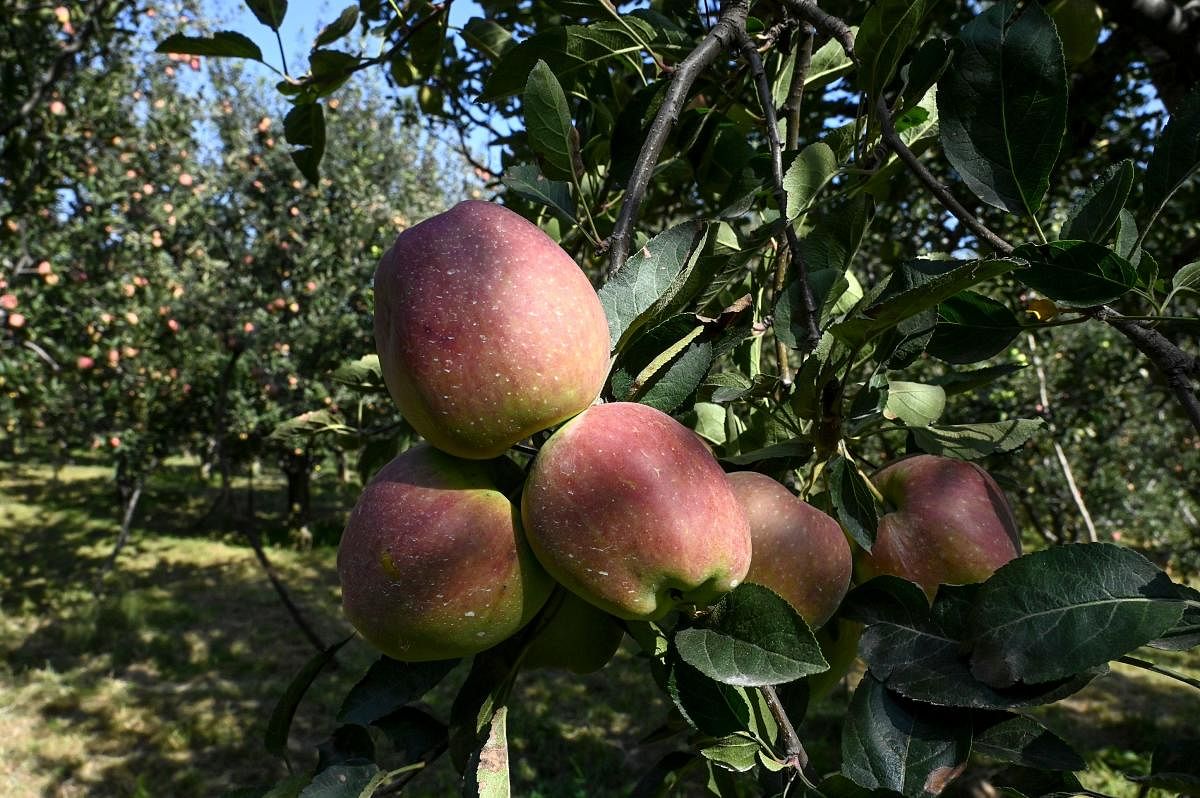
The security lockdown of Jammu and Kashmir following the scrapping of special status from August 5 coupled with the recent snowfall has hit the farmers hard in the region where horticulture remains the backbone of the economy, leaders from farmers organisations who visited Kashmir said on Saturday.
Apple, saffron, pear, cherry and grapes – all those fetch money for the farmers could not be harvested on time due to lack of transporting and communication facilities and this could have caused a loss between Rs 3,500 crore as estimated by authorities and Rs 7-8,000 crore as calculated by farmers this season, they said.
The seven-member delegation felt that the timing of the government's move on Kashmir had a direct impact on farmers as it coincided with the harvesting season while the snowfall from November 7 added to their woes.
Kashmir's horticulture sector has a turnover of around Rs 10,000 crore and the assessment of the seven-member delegation of All India Kisan Sangarsh Coordination Committee (AIKSCC), a nationwide platform of 250 farmers' organisations, came after their three day visit from November 13 to Srinagar, Ganderbal, Pampore, Pulwama, Kulgam and Anantnag.
"The backbone of Kashmiri farmers have been broken by two reasons – the political turmoil following August 5 and the snowfall. And unfortunately, both happened in the same season," Yogendra Yadav of Jai Kisan Andolan and Swaraj Abhiyan told reporters.
Crops like pear, cherry and grapes, which were harvested in August, could not reach the market due to the lockdown while apple harvesting in September was delayed, as farmers could not go out for picking.
Yadav said the communication collapse meant apple growers, transporters and traders could not communicate with each other, causing a disruption in the demand-supply chain and the produce could not be brought to the procurement markets due to restrictions on trucks entry into villages. “This caused delays, inconvenience and additional costs," he said.
Another issue highlighted by the delegation, which also included Raju Shetty (Swabhimani Shetkari Sangathana), P Krishnaprasad (All India Kisan Sabha) and AIKSCC Convenor V M Singh was the “miserable” failure of NAFED that could could procure only 0.01% of the apples produced (1.36 lakh of the 11 crore apple boxes weighing 15-16 kg each).
Sheep breeders were another section which was affected as there was a sharp decrease in sale of goats and sheep while the impact on saffron crop was much worse as this year, the yield is expected to be between 1/6th to 1/8th of the average production, it said.
The heavy snowfall also added to the problems as farmers were not able to harvest the crop. Singh said, "farmers in Kashmir never looked at suicides. Now they are looking at committing suicides. The situation is very bad."
The delegation demanded the crisis faced by apple growers should declare a natural calamity and conduct a comprehensive survey to assess the actual damage. It wanted writing off loans of affected farmers as well as compensation for actual loss.
The delegation also included Swastik (Swabhimani Shetkari Sangathana), Prem Singh Gehlawat (All India Kisan Mahasabha) and Satyawan (All India Kisan Khet Mazdoor Sangathan).
